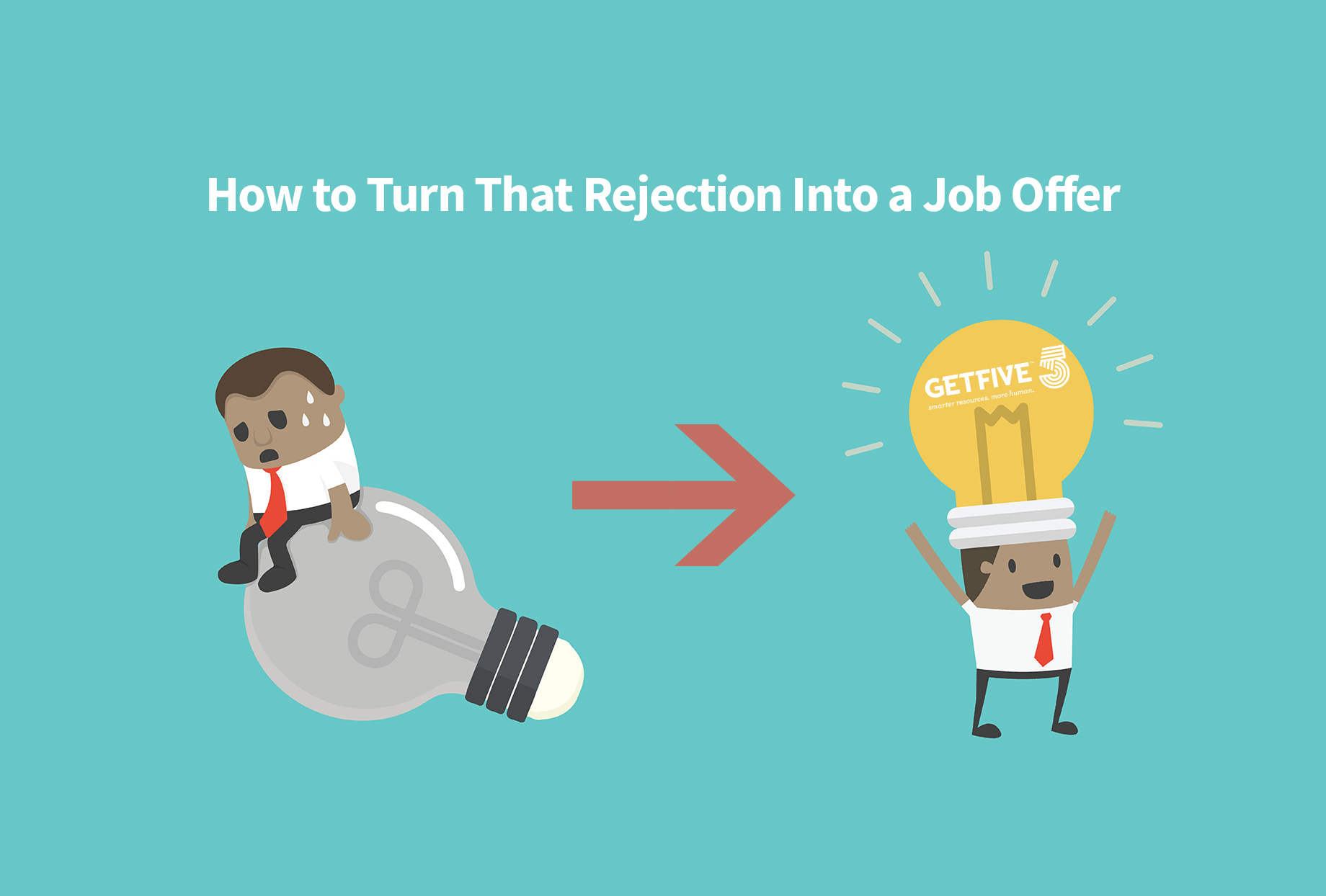No one relishes the idea of being rejected, personally or professionally. While you can’t do much (and probably shouldn’t) to convince a person who declined a date that you’re a real catch, it is possible to change the mind of a rejection-inclined hiring manager. What’s more, turning a rejection into a job offer can benefit your career in ways beyond just landing your next job.
In order to turn things around, it’s first important to understand what we mean by “rejection.” If you send out 200 resumes and hear back from just five potential employers, the 195 who didn’t respond don’t constitute rejection. Their silence could mean you need to re-examine your targeting, resume quality and cover letter customization, but you haven’t really been rejected by the non-responders; you just didn’t catch their attention.
Now, say you interview with the five who did respond, and one of them strongly indicates you are their leading candidate. If, during the second interview, the hiring manager changes tune in a way that makes you think you’re no longer in the running, that could be considered a rejection — and you can still turn it into a job offer. The first step is to head off the rejection before it actually happens. During the interview, ask questions to ensure you understand what challenges the company is facing and how the new hire will help respond to those challenges. Ask what the new hire will need to do immediately to help move the company forward.
After every job interview, don’t just write a thank you note — write an influence letter. Your letter should briefly restate key points from the conversation you had with the hiring manager, and remind him/her of how your skills and experience fit with the company’s objectives. The letter should make it clear that you understand the scope of the challenges and are uniquely positioned to help the company respond. Make sure you use good grammar and punctuation and that your professionalism and passion come through. It often helps to have the letter reviewed by a knowledgeable friend or colleague, such as your career coach.
If the hiring manager has raised a specific area of concern with your candidacy — you have little experience in a key area, or you are “over-qualified” — address those comments directly in your influence letter. Invite the hiring manager to test your abilities in order to convince him/her that you can overcome their concerns.
Finally, remain persistent and professional. End your influence letter by asking when you can meet with the interviewer again to further discuss your candidacy. If the hiring manager agrees to another meeting, take it as a good sign, even if they indicate you haven’t allayed their concerns. The fact they agreed to meet again means you’re still in the running, and you still have the opportunity to prove your value to the company.
To overcome rejection, you need to be able to overcome the reasons — real or imagined — behind it. With the right approach, it’s often possible to turn “no thanks,” into “yes.”









